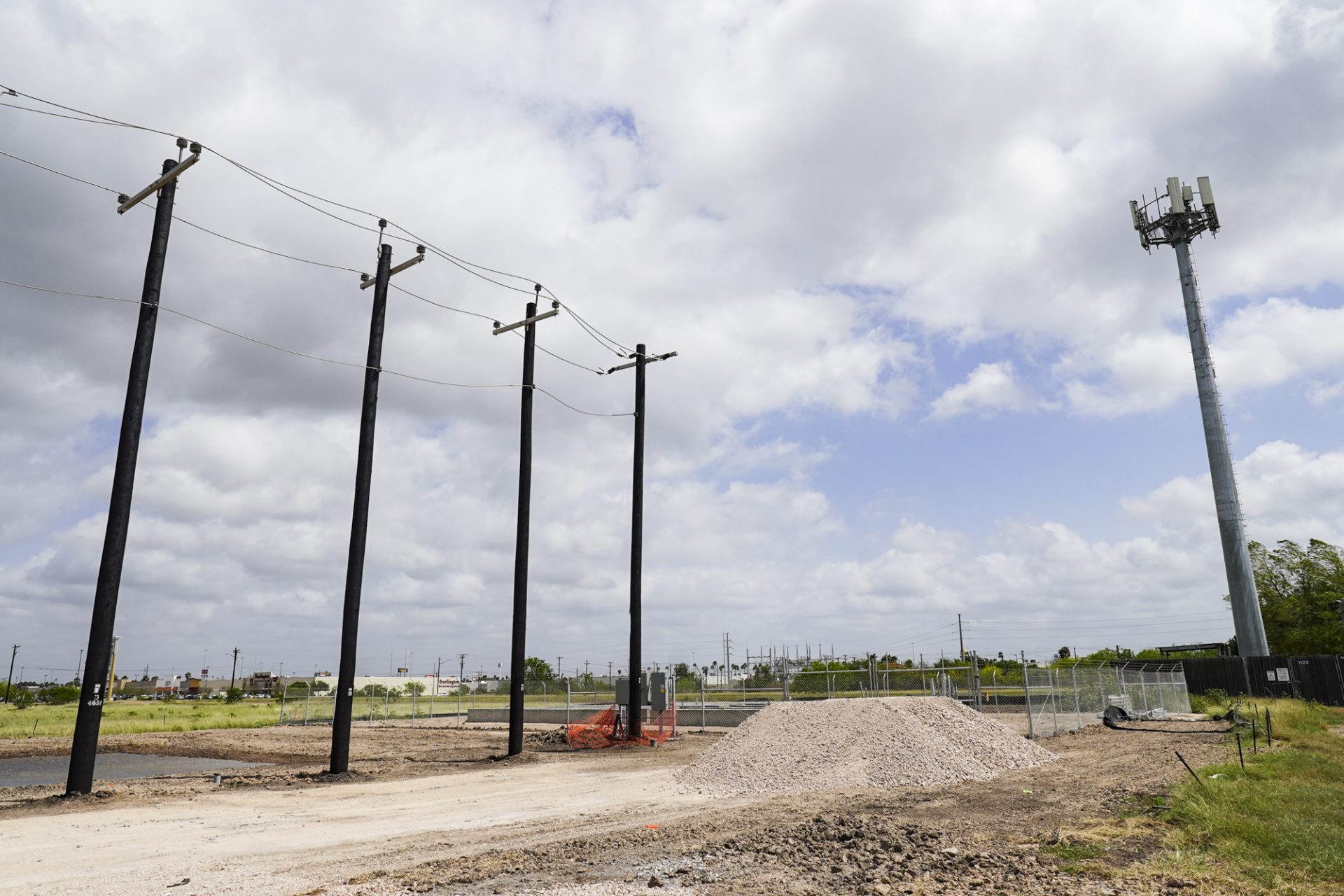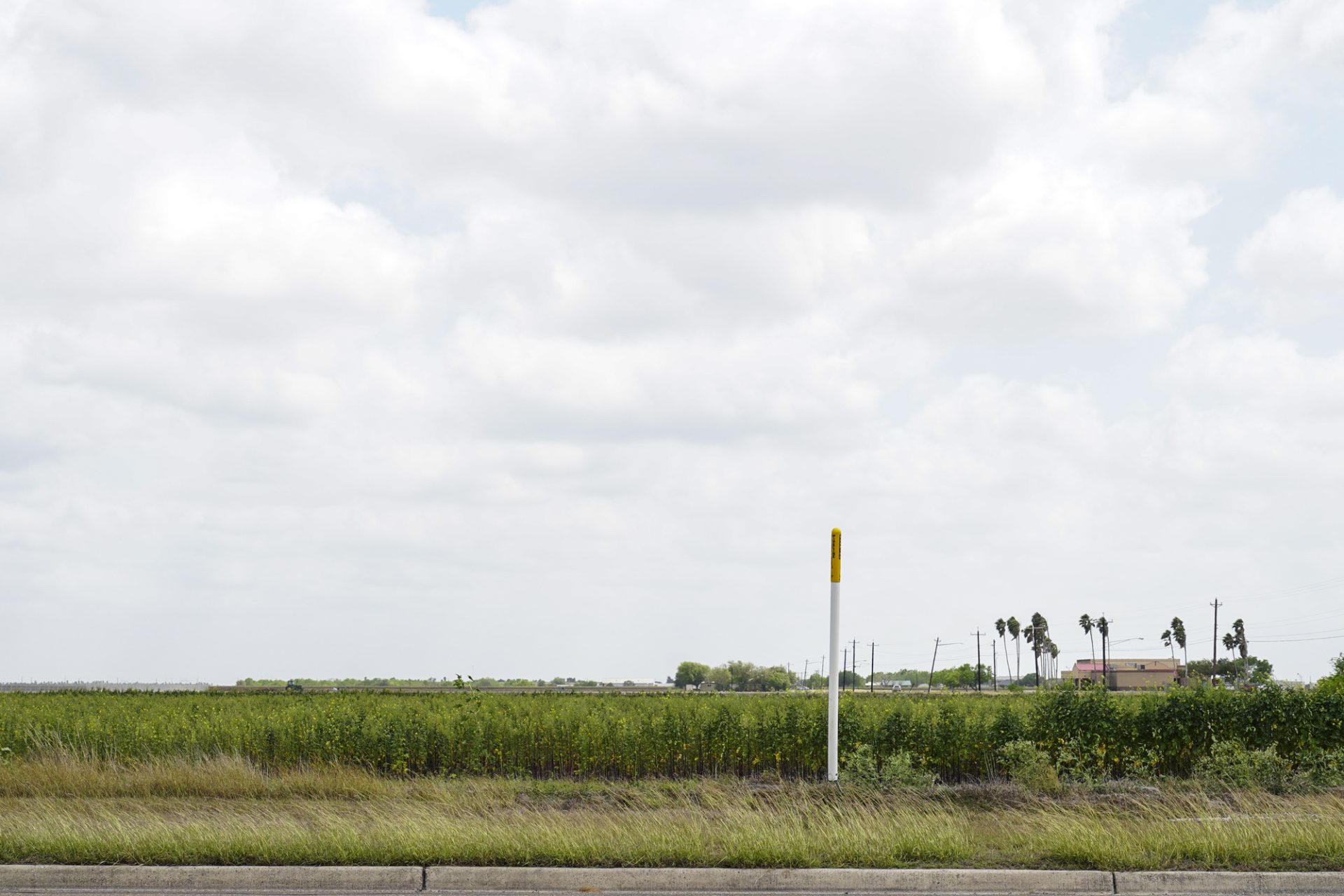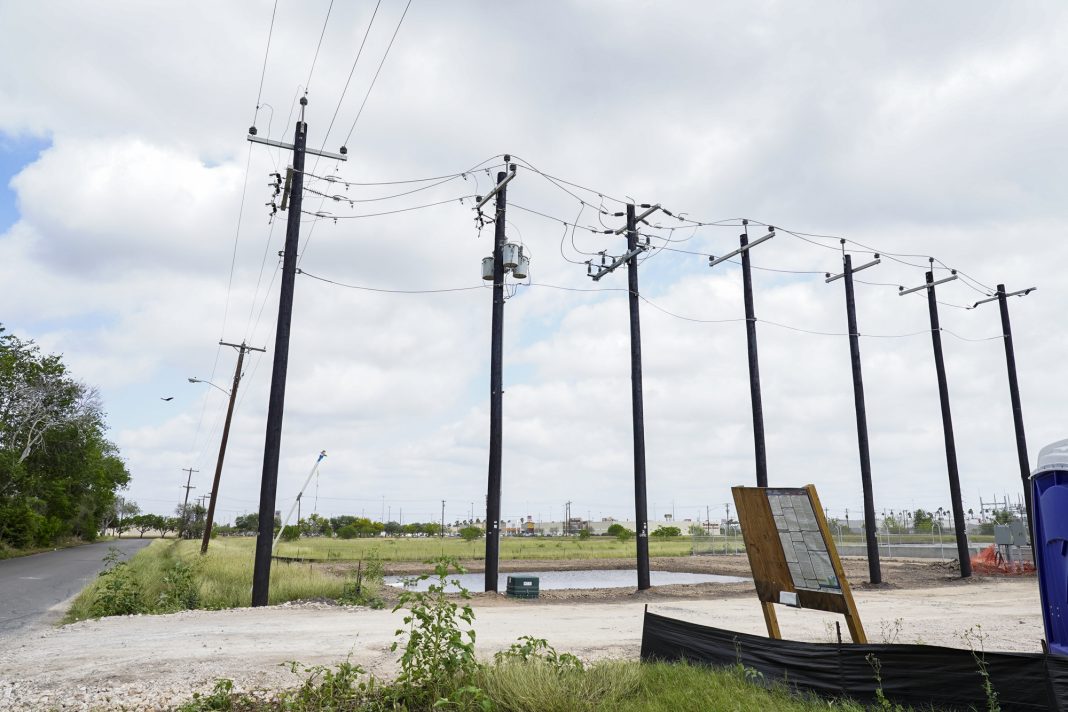HARLINGEN — The city’s granting of a special permit to open a six-acre $100 million, 100-megawatt battery energy storage site on East Grimes Avenue farmland might hinge on the tax dollars the plant raises.
Last year amid little resident opposition, a previous commission granted a special use permit to a Colorado company opening a one-acre battery storage site with crystallized lithium-ion batteries in 20-foot shipping containers off Tucker Road near Lincoln Avenue.
Now, the city’s first battery storage site, under construction on the city’s far west side, is expected to open in June.
The battery energy storage plants are designed to provide the electric grid with battery back-up energy reserves during periods of high demand.
Earlier this week, city commissioners held off on granting Fort Worth-based Black Mountain Energy Storage a special use permit to build a six-acre unmanned plant storing lithium-ion batteries off East Grimes near the intersection of Loop 499.
Now, commissioners are planning to consider granting the permit upon the company’s disclosure of information regarding the amount of tax dollars the plant would raise.
After an hour-long presentation Wednesday, commissioners delayed action, requesting the company provide the information, with Commissioner Michael Mezmar casting the lone dissenting vote.
At the podium, Dan Ditto, a company representative, told commissioners the $100 million plant would raise a total of about $20 million in property tax revenue for area taxing entities over a 20-year period, with the city receiving about $5 million during that time.
But Nick Consiglio, chairman of the city’s Planning and Zoning Commission, told commissioners tax revenue levels the company presented to that board ranged from about $500,000.
The project
During his presentation, Ditto told commissioners the company plans to connect its battery storage plant to an AEP Texas substation across Loop 499.
So far, the company is developing about 20 to 25 battery storage sites, including projects in Roma, Eagle Pass and Del Rio, he said.
“There’s a reason we chose this location and that is because of the AEP … substation that’s right across 499,” he said. “There’s a proximity issue with getting too far from the substation, and it’s highly beneficial to avoid any outages.”

The plant could provide power to about 50,000 homes for two-hour periods, he said.
Amid discussion, Commissioner Ford Kinsley questioned the company’s inspections of the proposed unmanned site.
In response, Ditto said the company would inspect the site about once a month.
“They’re constantly being monitored so if anything comes up, we have people that can easily access the site,” he told commissioners. “It’s an unmanned facility, but it’s operated off-site so there are people on it 24/7 dealing with AEP and ERCOT to know when to discharge these batteries as needed. AEP will also have direct access to the site. They’ll have access on our roads to get in the property.”
To control any flooding, the site would include a retention pond, Ditto said.
Meanwhile, Mezmar said the batteries posed no health or safety risks.
“The batteries are safe,” he said. “This is all science. Everything’s easy.”
Wall to surround plant site
During the city’s presentation, Xavier Cervantes, the city’s planning director, told commissioners he recommended granting the special use permit based on the Planning and Zoning board’s unanimous approval of the project.
Cervantes said the company would build an eight-foot-tall black wall to surround the plant proposed to open along one of the city’s main commercial corridors near Valley International Airport.

“In the initial meeting with the Planning and Zoning Commission, there were concerns about aesthetics of the project along this major commercial corridor,” he told commissioners. “In essence, you will not be able to see these batteries because of the black wall on all sides and then landscaping all along Loop 499 between the wall and the property line.”
Company responds to concerns
During a public hearing, Consiglio questioned the amount of property tax revenue the plant would generate based on information Ditto had given the Planning and Zoning board.
“I’ll tell you, the first meeting we had, it was $70 million, now $80 million,” he told commissioners, referring to the project’s taxable value. “Now it’s $100 million, so that’s a pretty big scale. It’s the same property, the same six acres, yet the value’s somehow gone up to $100 million.”
Consiglio also questioned whether the plant’s taxable value would depreciate.
“If it’s a depreciating asset, well then every year that gets smaller and smaller,” he said, referring to the plant’s taxable value.

In response, Ditto told commissioners the company’s latest information put the project’s value, with its transformers, batteries and construction, at $100 million.
“We were thinking about $80 million, and that’s usually what a 100-megawatt facility is,” he said. “But with two-hour duration, that raises the cost, as well as there are a lot of supply chain issues.”
In addressing questions of depreciation, Ditto said the company could install new batteries, boosting the plant’s taxable value.
“As the technology evolves, it might be the case where five years down the road you’ve got to keep up with the times and install new batteries,” he told commissioners. “That’s a decision that will be made down the road.”
The company would launch construction in late 2024, with completion expected around mid 2025, he said.





